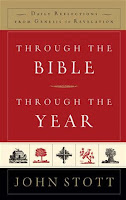The Prophets and the Embodiment of the Word: Ezekiel as Case Study
A. Vision
of the Chariot (ch 1)
The Prophets were seers. Like the singer in exile (Psalm 126), the prophets were like those who dreamed and whose dreams were revelatory. God was the not merely the object of their dreams but the subject. Revelation was not merely an event in the life of the prophet; it was an event in the life of God. There was a self-disclosing on the part of God. What one detects in the life of the prophet is the inadequacy of language to carry the full freight of this revelation. The prophet is increasingly dependent on symbolism and even embodiment. The revelation of God cannot be adequately contained propositionally. The Word of God tends toward incarnation. And in the path between propositions and incarnation lies symbolism.
The vision of the chariot is a case in point. Ezechiel's commissioning occurs at the time he should be functioning as a priest in the Temple (1:1-3). This vision (or waking dream) is in technicolor and itself is in need of analogy as the prophet struggles for language adequate to what he is seeing ("like," "something like," looked like" - vv 4. 5, 7, 13, 16, 22, 24, 26, and 27). Commentators themselves resort to analogy to interpret the meaning of the symbolism - it is like the creation motifs of the Jerusalem temple, it is like the Babylonian gods that YHWH rules over, it is like the Cheubim of Isaiah's vision (ch 6), and the like. Since we are told this is a vision of the glory of the LORD that normally dwelt in the Temple, it likely has more than one referent and may include all of the above. The point here is that Ezekiel finds even symbols inadequate to carry the full meaning of divine revelation. We must read further to see what he does with this fact.
B. Call
to the Rebellious House (ch 2-3)
In 2:1-7, for the first time God addresses Ezekiel as ben adam (literally "son of man" or "son of adam"). The phrase occurs about 90 times in Ezekiel and suggest the creation motif from the Temple is at the heart of this revelation. The 'son of adam" is the point of contact and reconciliation between heaven and earth. This new man is called to embody this message of reconciliation to God's rebellious people who have abdicated their calling.
C. Called
to Act out the Message (chs 4:1, 5:1, 6:1, etc)
If propositions and symbols are inadequate to carry the full freight of revelation, what will the prophet do? The divine message require a deeper indentification from the prophet. In chapter 4:4-8 the Lord tells Ezekiel to act out Israel's siege:
Lie on your left side, and place the punishment of the house of Israel upon it. For the number of the days that you lie on it, you shall bear their punishment. For I assign to you a number of days... And when you have completed these, you shall lie down a second time, but on your right side, and bear the punishment of the house of Judah... And behold I will place cords upon you, so that you cannot turn from side to the other, till you have completed the day of your siege.
Gabriel Josipovici comments perceptively about this kind of prophetic experience: Such behavior is not just supplementary to language; it swamps language completely. One senses in all these prophets a terrible longing for escape from the limited, contigency-bound use of words...This so important that they are willing to sacrifice themselves in order to to show upon their very bodies the meaning of the events that are occuring around them and which the people refuse to acknowledge... Listening and speaking are no longer enough for the prophets. God and man can no longer speak in the tones and using the expressions of everyday conversation... It is as though the voice had to carry across a great distance now, and if this is partly because the audience blocks its ears, it is also because God no longer seems able to speak simply and directly.... but the prophets, desperate for the people to see and understand, act out that meaning in their own bodies. (The Book of God, p.181-2).
From the experience of the prophets, which is also the experience of God in the prophets, one detects the inevitability of incarnation. There is about to be a man, another "son of adam" like Ezekiel whose every word and deed, embodied in his person, reveals the message of God to his people.
This "incarnational trajectory" in scripture reminds me of Flannery O'Conner's description of a good short story: it must have meaning and muscle. And the meaning is in the muscle.






